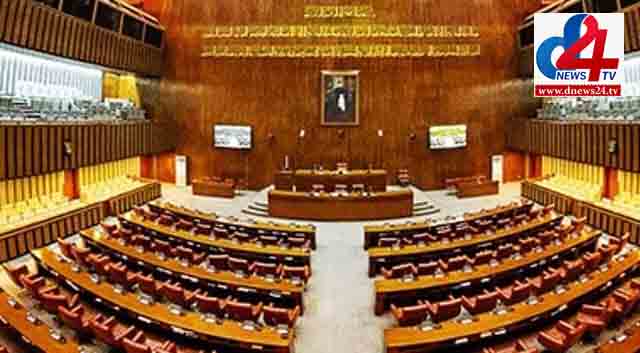ISLAMABAD:
In the midst of resistance from the Pakistan Tehreek-e-Insaf (PTI) and the Jamiat Ulema-e-Islam-Fazl (JUI-F), the Senate Standing Board of trustees on Regulation and Equity supported on Friday a bill to build the quantity of Arbiters for the highest court from 17 to 25, including the central equity of Pakistan.
The board met here with Congressperson Farooq H Naek in the seat. Congressperson Abdul Qadir, who introduced the bill in the upper place of parliament, featured the need, refering to the nation’s developing populace and heightening crime percentages.
“Cases are delaying for ages, yet the quantity of judges stays stuck at the levels of the 1990s,” Congressperson Qadir contended. He likewise highlighted the rising number of cases being documented in the High Court.
During the board of trustees meeting, administrators from the previous decision party and the JUI-F voiced solid resistance to the choice. PTI Representative Hamid Khan communicated serious worries about the regulation, expressing, “Such a technique to delegate High Court judges is an assault on legal freedom.”
Featuring provincial correlations, Hamid Khan expressed, “India is multiple times bigger than Pakistan however has 34 Adjudicators for the highest court”. Nonetheless, he forewarned against growing the seat, adding that it could demolish inside debates.
“Defers in cases have additionally been exacerbated by the High Court’s unseen fits of turmoil,” he said, adding that any proposition to build the quantity of judges ought to include the legal executive’s feedback. “This increment isn’t required and could hurt the legal executive,” he cautioned.
Representative Kamran Murtaza called attention to empty legal seats in the high courts. “Before October 25, the High Court’s agenda was almost at a halt. Presently, north of 30 cases are being heard everyday,” he said.
Hamid Khan declared that the previous states had extended the legal executive to apply control – a move he trusted harmed the legal freedom. He alluded to past divisions in the pinnacle court, a point reverberated by Representative Murtaza.
Murtaza claimed that the public authority was attempting to change its larger part into a minority. Congressperson Abdul Qadir countered his contention, saying: “The High Court is currently joined together; there are no groups.”
As indicated by the panel executive, the bill specified that the High Court would involve one boss equity and 24 adjudicators. Regardless of the push, Hamid Khan and Kamran Murtaza went against any expansion in the quantity of judges, advance notice of likely regrettable repercussions for the legal executive.
Congressperson Anusha Rehman raised monetary worries, addressing why the public authority covered service bills for the higher legal executive individuals, while parliamentarians pay theirs.
“Why are judges who leave, actually getting benefits?” she inquired. She likewise censured legal changes under the 26th Amendment, contending they have hurt the legal executive.
JUI-F Congressperson Kamran Murtaza reprimanded the regulation, guaranteeing that it pointed toward selecting “most loved judges” to the High Court. “Since October 25, judges have been working without a hitch [ ] There is compelling reason need to expand the endorsed strength,” he contended.
Then again, Pakistan People groups Party (PPP) Congressperson Shahadat Awan focused on the significance of raising the quantity of Justices for the highest court to something like 21. Regulation Clergyman Azam Nazeer Tarar likewise upheld the regulation, recommending that the new bill be shipped off the significant panel for audit.
The law serve supported Representative Qadir’s focuses and featured that various cases including the death penalty have been forthcoming starting around 2015. “One individual burned through 34 years in prison because of a forthcoming allure under the steady gaze of the top court,” he noted.
It is worth focusing on that two resigned judges – Equity (retd) Tariq Masood and Equity (retd) Mazhar Alam Miankhel – were delegated as impromptu appointed authorities to the High Court for one year in July to handle the overabundance of cases.



